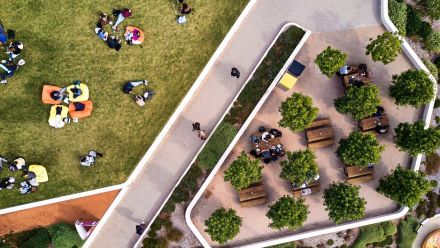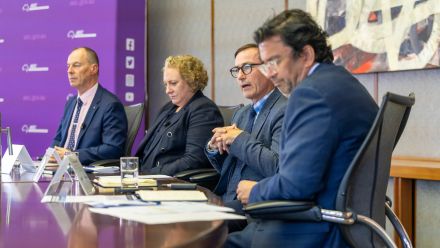Three tips for living with the "COVID Crankies"
Looking after our mental health during the pandemic requires self-compassion, writes Dr Jo Lane.
When I ask people how they are going, they often say they are feeling really tired, irritable and over it. They may be experiencing what I call the "COVID Crankies".
It is not surprising we are feeling this way. Life during the COVID-19 pandemic has been challenging. It is like someone else signed us up for a marathon that we hadn't prepared for and we have no idea where the drink stations are, let alone the finish line. Initially, the adrenaline got us through, but now our pace has slowed down and we are moving forward using sheer determination. Dr Kristin Neff is an expert in self-compassion and her extensive research in this area can give us some tips as to how we can live with the COVID Crankies.
The first thing we can do is be real and acknowledge how we feel. It is normal to feel physically and emotionally exhausted, to have a short-fuse and feel sad. This is hard. Taking care of ourselves is important as we don't function well when we are exhausted. The conditions have changed and it is important to adjust our expectations.
Being kind to yourself might mean giving yourself permission to go gently, take some time out, rest, turn off your computer and phone, and set some boundaries. It can also include establishing a routine that helps to recharge your batteries - eat a balanced diet, exercise, get out in nature, connect with your loved ones, do things you enjoy and avoid things that aren't really helping.
Secondly, remember we are not alone. Many of us are feeling the COVID Crankies, so it is important to be kind to ourselves and others. While we are changing our expectations for ourselves, we could also do that for others. We are all trying our best right now and that is enough. Check in with your friends, family and colleagues. Let them know you are doing this together. If you are feeling alone, reach out to others. If you are struggling, talk to someone you trust - a friend, family member, your GP or another health care professional. There is always someone who will listen 24 hours a day on the Beyond Blue Coronavirus Mental Wellbeing Support Service on 1800 512 348 and Lifeline on 13 11 14.
The final component of self-compassion is related to mindfulness. It is easy to get stuck in the past and think about all the things we should have done before COVID but didn't. Also, when we feel uncertain and out of control, we can get stuck thinking about all the things that might happen, particularly the worst case scenarios.
Sometimes when we are experiencing the COVID Crankies our spotlight can be firmly focused on all the bad stuff that is happening. It is important to take a step back, which will help to broaden our focus and perspective. Some people find it helpful to reduce their time on social media if they are feeling overwhelmed by it. Others like to write things down as getting things out of your head and onto paper can help. Another strategy to help maintain perspective is to practice gratitude by focusing on the good things that are happening and the things you are thankful for.
The COVID Crankies are here. We don't know where the finish line is for this pandemic, but we will get through it by being real, kind to ourselves and others, reaching out and maintaining perspective.
Dr Jo Lane is a clinical psychologist and Research Fellow at the Research School of Population Health at The Australian National University.


